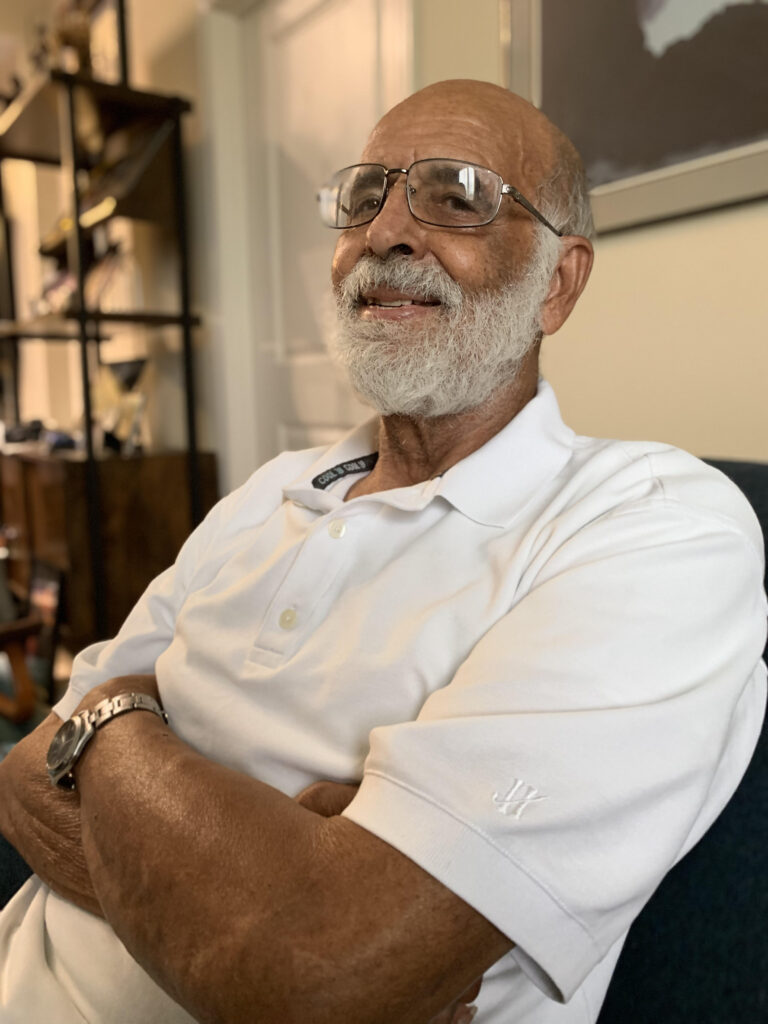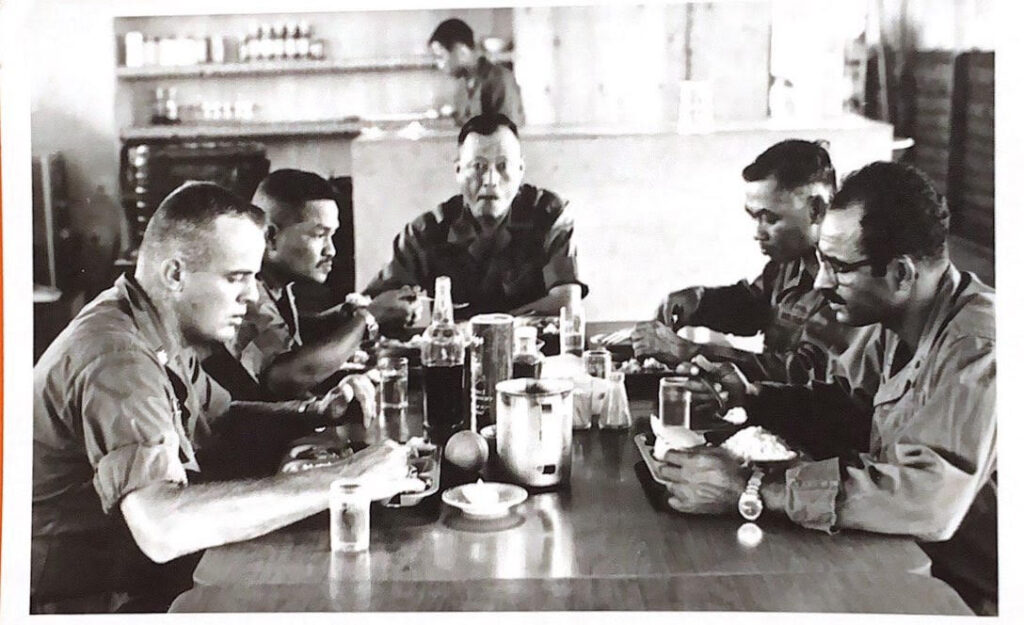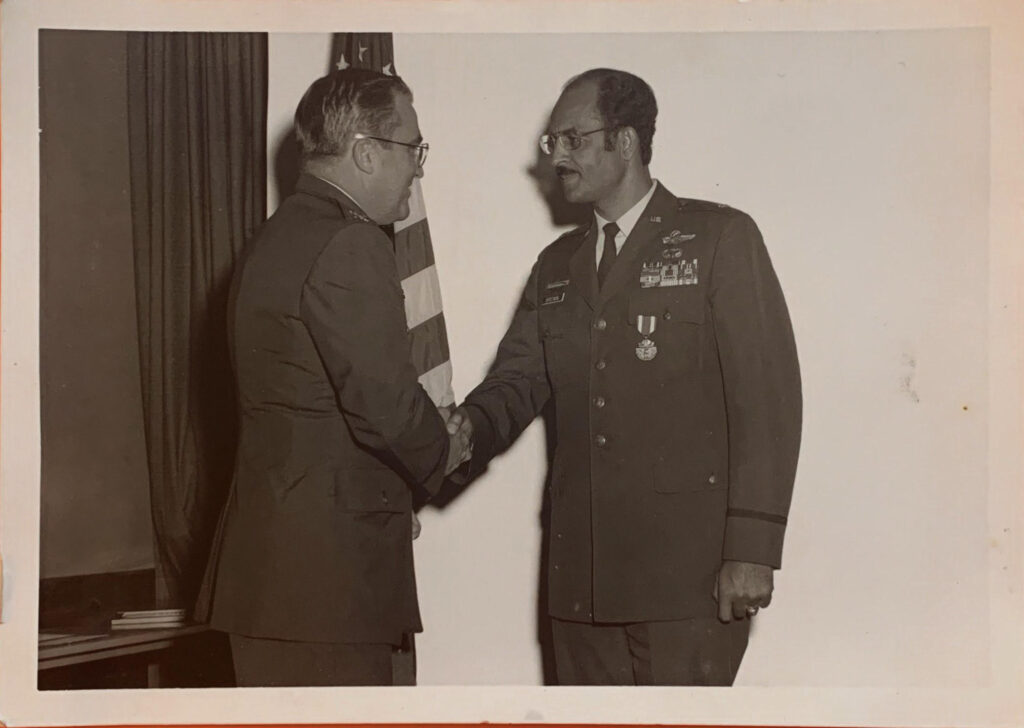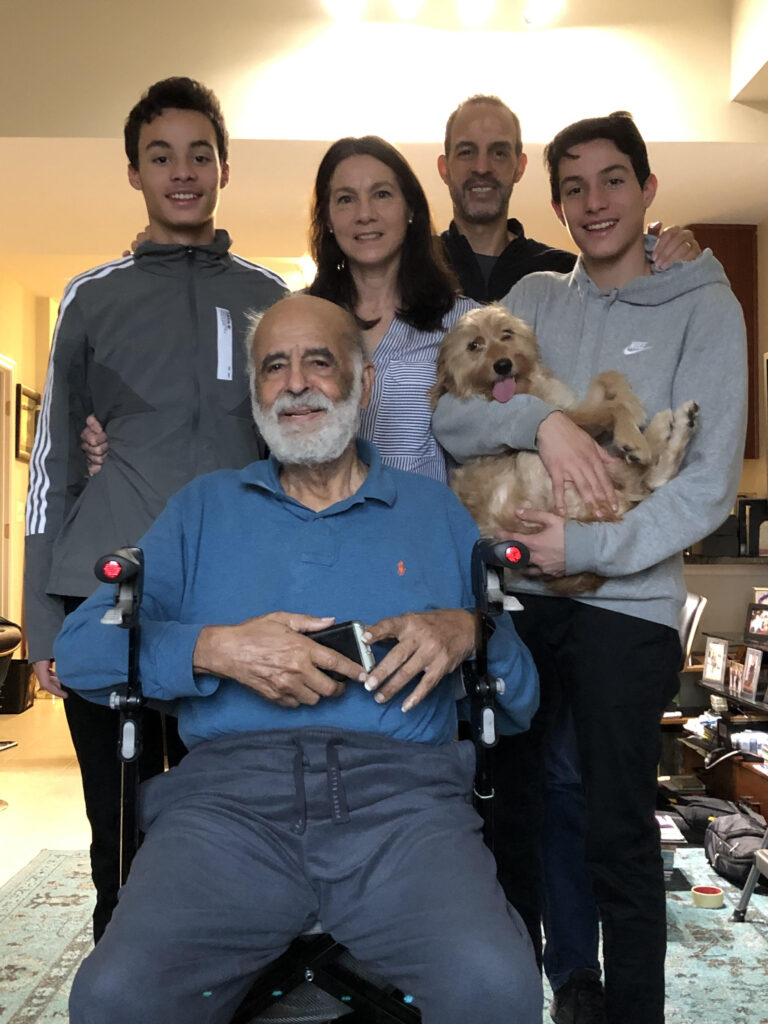My dad recently moved into an assisted living facility. He battled for three years to maintain his freedom and independence. Sadly, his latest fall finally proved to him at ninety-one he no longer had the judgment or strength to live on his own. His new home right across from Thomas Circle in Washington, D.C. amounts to a nice sized dorm room, ample lounge spaces and a refractory. The real benefit of his new accommodations is the medical attention and care on hand to manage his health and to keep him safe. Once a man, twice a child.

The Clean Up
It took me four days to close out my dad’s two bedroom apartment. His mementos were enough to produce an episode of “This Is Your Life.” The task to choose what items to discard, donate or save required me to determine what was truly meaningful to him. The responsibility to curate his life drained me emotionally and physically. What was clear, however, was the most treasured memorabilia my dad saved were from his thirty-three year career as an Air Force Fighter Pilot.
Flight
Flight Log
I found the innocuous, thin black 5” x 7” Pilot Flight Record book among my dad’s important banking records. It is from 1957. The log is an account of each flight he made in his first year of flight training. This was the seemingly mundane documentation of my dad’s realization of his dream to become a fighter pilot. The date, destination, duration and aircraft for every flight he made were meticulously recorded in this book. Each week the entries were “certified true and correct” by his Commander.
Typically, my dad flew four or five days in a row. On most days, he flew once but occasionally he flew three times in one day. The neat entries appear as simple, perfunctory notations. In reality, each entry represents the arduous work required to expertly handle a multimillion dollar one and a half ton aircraft under the most extreme conditions like an extension of oneself. Takeoffs, landings, barrel rolls, night flights, instruments only flights and countless other maneuvers had to be mastered before a pilot earned his wings. This is the official account of the successful accomplishment of the work required to fly for your country.

The flight record holds particular relevance to me because as a world class runner I kept a meticulous training journal. At a glance, my journal takes me back to a time I was young and invincible. A journal may not log the specific details or emotions felt at the time but the mere notations have the power to stir up indelible memories nonetheless. Indeed, the Pilot Flight Record transported my dad back to the tarmac and the purr of his T-34 poised for another flight. Perhaps, he returns to the peacefulness of being 20K feet above the earth engulfed by the hum of his engine and his thoughts or the adrenaline elicited from the execution of his first aileron roll. The book remained in his possession all these years as a clear reminder: He had “demonstrated that he possessed to an unusual degree the ability, initiative, and other leadership qualities so essential to successful performance of duty as an Air Force Officer.”
Yearbook
I did not come across any of my dad’s old report cards, athletic medals or other records of his personal achievements. It seems all else pales in comparison to the journey to become a fighter pilot. Packing up his apartment took longer than I expected because it was impossible not to leaf through the history at my hands. The year books from his time as a flight student and flight instructor offered the clearest visual account of his journey. Each book had a standard group shot of the training class of about thirty young pilots in front of a T-38: The preferred training jet of the era. In addition, each student proudly posed in front of their plane. These normally stoic young men stood for the photographer in dominant poses with their helmets propped on their hip and wide grins on their faces. They exuded pride like a mountaineer who just summited Mt. Everest or an Olympian on the podium. Statistically, their accomplishments are equally exceptional.
Groundbreaker
I can’t ignore my father was the only African American in his year books. In 1948, the United States Air Force was the first of the American armed forces to integrate. The Air Force leadership along with the success of the Tuskegee Airmen helped refute studies which claimed blacks were predisposed to lack physical courage and whites would not tolerate them as their supervisors. Fifteen years later, fueled by his contemporaries’ protests like the boycott of the Montgomery, Alabama transportation system for the right to sit in the front of the bus, my dad was an Air Force fighter pilot instructor. He realized the dreams of a movement before it even gained momentum.
Super Suit
In the back of my dad’s clothes closet were probably the two most definitive items of his military career: His Air Force blue dress uniform and the freedom green flight suit he wore in Vietnam. These were his Super Suits worn for the greater good. Silver eagles pinned to the shoulders of the dress uniform identified his final rank as a full colonel. His silver flight wings sat above the six rows of ribbons on his left breast pocket. The ribbons and medals told stories of duties and achievements which he never shared with me in detail.

For example, I knew my dad was in the Army and fought in the Korean War before he joined the Air Force. I, however, always thought of this stint as a mere prelude to his real military acclaim. Research revealed the Army Infantry award on the left breast coat pocket of my dad’s uniform represented exceptional achievement. The three inch blue enamel rectangular bar, which was superimposed with a Springfield Arsenal Musket, Model 1795 which sat atop an elliptic oak-leaf wreath which symbolized steadfast character, strength, and loyalty told a far deeper story. The badge recognized that as an infantryman he operated under the worst conditions and faced a greater risk of being wounded or killed than any other military occupational specialties. The bearer was a highly-proficient, tough, hard, and aggressive soldier. My father did not do anything halfway.
The flight suit could have been easily overlooked. It is a jumpsuit akin to a workout uniform. Gold oak leafs adorn the shoulders. They denote my dad’s rank at the time as Major. His name, all in capital letters was stitched above his left breast pocket. I gather any other information on the uniform would breach a pilot’s requirement to only reveal his name, rank and serial number if he was captured. This item of clothing was only worn in the theater of war. It is similar to the uniforms worn by great athletes as they accumulated their memorable statistics and championships which are eventually donated to Canton or Cooperstown.
Reconciliation
My dad took me to big time track meets like most fathers take their kids to professional football or baseball games. This showed me the sport wasn’t just something that popped up every four years in the Olympics. We shared a penchant to move through time and space differently than most others.
I can thank my dad for helping me find running as my passion. In turn, at the top of my bedroom closet in a Nike USA National Team bag is my kit from the indoor world championships and a few other old uniforms I wore in the course of winning six USA National 800M track championships during my career. Ironically, my dad never realized these may have been my Super Suits. We spent more time talking about our differences than our similarities.
New Home
Everything in the 1500 sq ft. apartment condensed to a 5’ x 7’ storage bin. His new room was furnished with an adjustable bed since his frailty made it hard to sleep comfortably in a regular bed. I brought him his Eames chair so he could enjoy the view of Thomas Circle from his balcony. In addition, we displayed his T-38 and F-4 model planes which were the ones he primarily flew during his career. I also brought him a farewell plaque literally made from a board. The squadron he commanded in Vietnam gave it to him. Family pictures, a few of the yearbooks and other knick knacks also made the cut. His caregiver and a couple neighbors picked up some furniture which would always remind them of their friend. The rest was thrown out or donated. I had to. The doctors told me dad would never again live on his own.

Only a few months ago when I discussed with my dad he needed to think about more help from his caregiver he snapped at me, “I can take care of myself like I did when I was fourteen after my dad died. . . Like I did when I risked my butt everyday in Vietnam.” He suffers from vascular dementia which comprises the prefrontal lobe. His short and long term memory were more less in tack. His dementia is primarily expressed by a lack of judgement and poor reasoning.
Twilight
One of my dad’s doctors asked to speak with me after one of my visits. She wanted to know the man behind the man under her care. His slouched posture confused her. The problem could be physical if he is too weak to hold himself up or neurological if the brain can’t relay the message to the body to sit up straight. My dad is a conundrum. He is in a cognitive decline but he battles on. He is lucid. He reads the paper and retains information. His personality is amplified not muted. He may be diminished but I fully recognize the man in front of me. As I watched my father age, I’ve come to realize you die the way you lived. Maybe soldiers don’t just fade away. I know one who remained defiant of time and space his entire life.

I want to say more but this is not the time or day which to do that.
I am just learning about the passing of your father. We were friends from 1956 until I alienated his friendship in the 90s.
Beautifully written.
What a brilliant, courageous man and an incredible legacy he created through his perseverance, hard work, and greatest achievement – his family. He, and the legacy you have continued yourself and through your sons, personify what our people have not only endured but have constantly overcome.
Incredibly moving — thank you for sharing!
Amazing man and story! Thx for sharing and posting it Ray. God bless
Ray-thank you for writing so eloquently about your father. Such a time of awakening, reflection and reconciliation. He sounds like a fine man.
Incredible!!! Mel was simply the best!!!